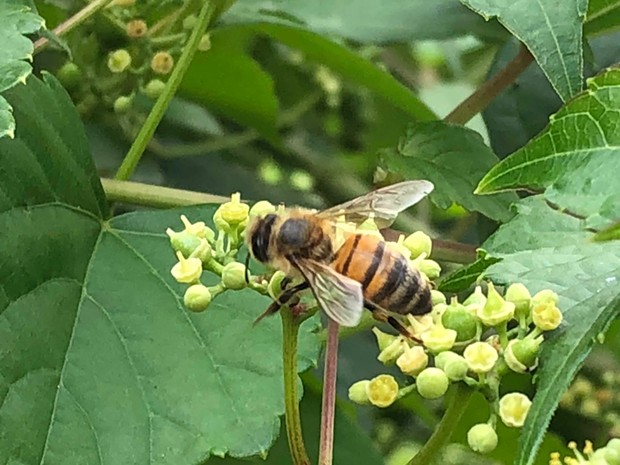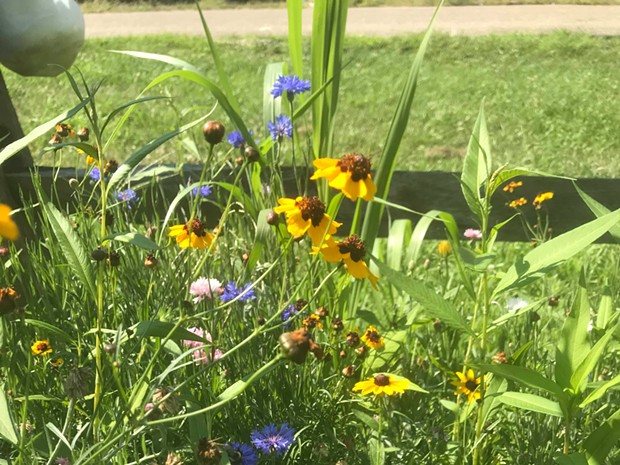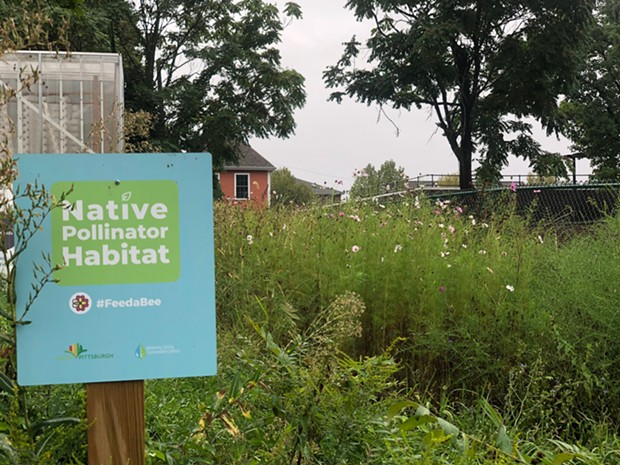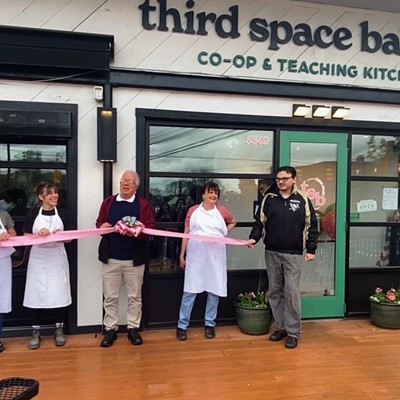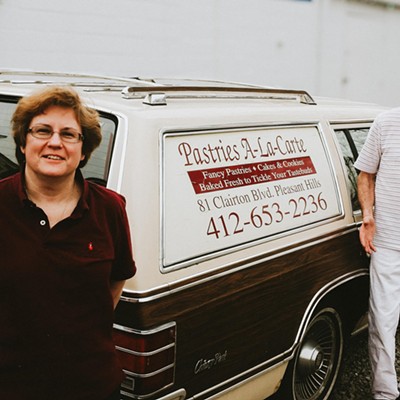In 2017, the Feed a Bee initiative set a goal to fund pollinator-dedicated gardens and farms in all 50 states. And with help from local organization Allegheny County Conservation District (ACCD), Feed a Bee reached this milestone.
During the spring of 2018, the ACCD, in collaboration with Grow Pittsburgh, transformed unused and underused city space into foraging grounds for pollinators. Through partnerships with urban farmers and community gardens, the two organizations bloomed in the Hilltop Urban Farm and the Homewood Historical Community Farm, alongside open areas in Troy Hill and Monroeville, and group plots in the North Side, and more.
Feed a Bee, established in 2015, creates foraging plots for pollinators. Plots, found in the form of gardens, farms, or even windowboxes, are designed to grow bee-attracting plants. The organization is an outpost of the pharmaceutical and life-science company Bayer. For 30 years, through the Bayer Bee Care Program, it has promoted pollinator health. Feed a Bee continues this legacy, working with almost 170 organizations and granting more than $650,000 for “pollinator-focused planting and education projects.”
In 2017, Feed a Bee awarded ACCD a $5,000 grant to fund local projects. The organization was looking for areas ready to promote and sustain pollinators while encouraging neighborhood involvement. ACCD’s unique community-centered project proposal to increase ecological diversity and pollinator education in the city was hand-selected by a committee of environmentally-minded professionals. With the grant, Grow Pittsburgh and ACCD were able to help establish pollinator sites, free of charge. All Pittsburghers had to do was apply.
“We used our Feed a Bee grant to establish pollinator habitat in partnership with urban farmers and community gardeners, and in doing so, created opportunities to educate our communities on the importance of bees in our environment and food system,” said Jonathan Burgess, a senior agriculture conservationist at ACCD.
On its website, Feed a Bee notes, “Bees need to visit about two million flowers to produce one pound of honey.” To date, the organization has planted over three billion wildflowers across the nation. But the sites aren’t just for honey bees (there are over 300 types of bees in Pennsylvania alone). ACCD rattles off a long list of pollinators that will benefit from these foraging plots: butterflies, bees, moths, beetles, flies, birds, and bats.
“Without them [pollinators], we would not enjoy the rebirth of nature each year or be able to eat fruits and vegetables that farmers and gardeners grow,” writes the conservation organization.
Now with planting projects in every state, Feed a Bee has reached its first goal. But that doesn’t mean the organizations — both Feed a Bee and ACCD — are done promoting pollinators. As Feed a Bee says, “Share. Plant. Repeat.”
To support Pittsburgh pollinators, use the #FeedABee hashtag on social media or make your own foraging plant box (instructions online at feedabee.com). Community gardens and farms are always looking for volunteers. Get connected with a foraging plot near you and help feed the bees.

